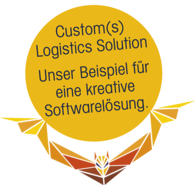THE ADVANTAGES OF A CUSTOMS WAREHOUSE
Even though it is only interim stored, goods being in transit have to be declared when entering the EU.
Unless the goods are stored in a customs warehouse until they are transported into their actual country of destination. That way no import customs clearance is imposed.
Once the goods are re-exported, a customs refund procedure can be sought in order to get reimbursement for the customs duties paid on import. However, this involves considerable accounting expenses. A customs warehouse will avoid these expenses because the goods were not legally imported and consequently, no duty had been paid.
In addition to the customs duties, goods being imported into the EU are also charged with a an excise duty: the import-turnover tax. This tax can be refunded when re-exporting the goods. Or better, not even having to pay it by leaving your goods in a customs warehouse until their further transfer into their country of destination.
Even transit goods which are returned are subject to the customs provisions.
With a customs warehouse the process of returns is considerably simplified.
Despite all electronic networking and simplifications, customs procedures are often very complicated and complex. Depending on the product category, even personal consultation with the customs authorities becomes necessary. Also using financial resources (from payment of import duties to their reimbursement) can be very significant. Not so in a customs warehouse. There, the goods are not located in the EU as prescribed by customs law. Only if their country of destination has been determined, the goods will be transferred into the corresponding clearance procedure.

